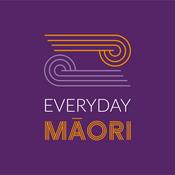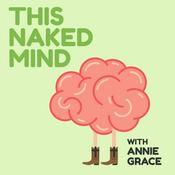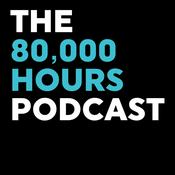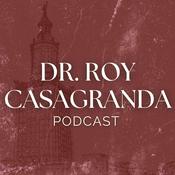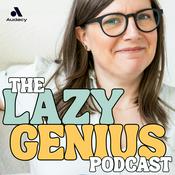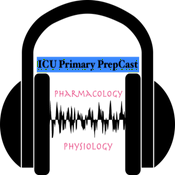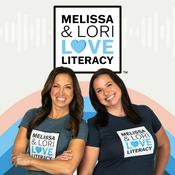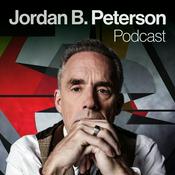132 episodes
- The Aging Project (TAP) Mini Meditations are designed to feed the mind and calm the nervous system. Most of our guests have spoken about taking moments to stop and pause in the day.
It's our hope you'll take 5 minutes to stop and breathe upon waking, and throughout the day, using our mini meditations to support you relax, and clear the mind.
Please write a review, comment or email us at [email protected] if you'd like to see more (or less) of these in the future.
👉 Join our FREE DNA webinar to learn more about The Fitgenes Program—register now to begin your DNA Discovery. https://theagingproject.com/fitgenes-webinar/
Join The Fitgenes Program here: https://theagingproject.com/offer/
👉 Shop our favourite skincare and supplements at our sister platform: www.youmusttryit.com - “The Vagus Nerve Whisperer” joins The Aging Project Podcast.
In this episode we go goes deep into one of the most important — and most overlooked — pillars of women’s health: nervous system care.
Shelley welcomes Tracy Whitton, a practitioner with 22 years’ experience and a unique gift: the ability to feel, sense, and intuit what a woman’s body is holding. Her clients call her “the vagus nerve whisperer” because of her work helping women calm, repair, and restore their nervous system.
Tracy has seen the same pattern in thousands of women: We’re living in constant overdrive — juggling kids, ageing parents, careers, rising stress, and the hormonal shifts of peri and menopause. Add past trauma or unresolved emotional load, and most women are living in fight-or-flight or shut-down mode without realising it. And here’s the truth she shares:
👉 Calm is not a luxury — it’s the foundation of aging well.
What You’ll Learn in This Episode
1. What the nervous system actually is — and why women need to understand it Tracy explains the sympathetic (stress), parasympathetic (calm), and dorsal (shutdown) states in simple language. She introduces the vagus nerve — the body’s main communication superhighway — and why it’s the key to regulating stress, digestion, mood, energy, inflammation, and hormone balance.
2. Why peri & menopause amplify nervous system issues Estrogen changes make women more reactive to stress, less resilient, and more likely to experience anxiety, overwhelm, thyroid issues, sleep disruption and gut symptoms.
3. How dysregulation shows up in daily life Tracy shares the subtle signs women ignore, like: Constant rushing or urgency Feeling “tired but wired” Emotional numbing Bloating, constipation, or gut slowing Anxiety spikes, irritability, sleep issues Forgetting to breathe Feeling disconnected from joy She explains why so many women say “I’m fine, just busy” even when their body is begging for calm.
4. What happens when you ignore your nervous system Tracy breaks down how chronic stress leads to: burnout thyroid problems gut issues autoimmune flare-ups chronic fatigue emotional overwhelm Yes — a “nervous breakdown” is a real physiological collapse. The hopeful news? It’s reversible when women begin nervous system care.
5. Tracy’s unique method: Her work blends: clinical knowledge intuitive clairvoyance somatic wisdom deep vagus nerve activation
6. Simple rituals any woman can start today Tracy offers practical tools for women who feel overwhelmed or disconnected from calm: breathwork gentle movement warmth, quiet and stillness building pauses into the day creating safety in the body reconnecting with self-compassion She explains the qualities of repair — dark, quiet, warm, slow, soft, and still — and how to weave these into daily life.
7. The book: 365 Days of Nervous System Care Eight years in the making, this book is a daily companion filled with rituals, practices, and insights designed to help women shift from stress to safety. Tracy also shares her new Facilitator Training, helping more practitioners learn how to guide women through nervous system repair.
8. Tracy joins The 120 Club
This month, Tracy leads an exclusive 2-hour Calm Body Workshop for members — live and with replay included. 9. One message for every woman 40–60 Tracy’s closing wisdom is simple and profound — a reminder that calm isn’t a luxury, it’s your birthright.
Links Mentioned
🔗 Buy Tracy’s Book https://www.amazon.com.au/365-Days-Nervous-System-Care/dp/1764254619
🔗 Connect with Tracy
https://www.stmt.com.au
https://www.instagram.com/stillness_through_movement/
🔗 Join The 120 Club and attend The Calm Workshop with Tracy. on Sunday 7th December, 4.00-6.00 AEDT
You'll attend free as a member. Unlimited replay access as a member.
🔗 Join The Calm Workshop with Tracy only (Non members price) . 20 days replay access.
Register Here - We’re popping in with something a little different (and something we’re very excited about): a behind-the-scenes look at The Fitgenes Program.
Today we're diving into The Dietary Choice Report, one of the 6 reports found inside The Fitgenes Program.
Ever wondered why some people can stop at one biscuit… while others eat the whole packet?
The answer might be in your DNA.
This episode looks at how our genes influence appetite, taste, and cravings, and what that means for long-term health and weight management.
🧬 The Dietary Choice Report, included in The Fitgenes Program, studies six key areas of how our bodies respond to food:
How easily we feel full (Satiety)
How strongly we taste bitter foods
How much we love sweetness
How we respond to sugar
How sensitive we are to fat taste
How our bodies process fat
Each area is linked to a few key genes that tell a story about how we eat and store energy. 💡
💬 The Big Idea Once you know your genetic blueprint, you can personalise your choices… and finally make food work for you, not against you.
So, get ready to go behind the scenes and learn about The Dietary Choice Report found inside The Fitgenes program and meet the experts including Darren Schliebs the CEO of Fitgenes and our favourite Clinical Nutritionist Lynsey Koch.
Enjoy the 5th episode of The Fitgenes Podcast Series.
👉 Join our FREE DNA webinar to learn more about The Fitgenes Program—register now to begin your DNA Discovery. https://theagingproject.com/fitgenes-webinar/
or Join The Program here: https://theagingproject.com/offer/
👉 Shop our favourite skincare and supplement at our sister platform: www.youmusttryit.com - The Aging Project (TAP) Mini Meditations are designed to feed the mind and calm the nervous system.
Most of our guests have spoken about taking moments to stop and pause in the day.
It's our hope you'll take 5 minutes to stop and breathe upon waking, and throughout the day, using our mini meditations to support you relax, and clear the mind.
Please write a review, comment or email us at [email protected] if you'd like to see more (or less) of these in the future.
👉 Join our FREE DNA webinar to learn more about The Fitgenes Program—register now to begin your DNA Discovery. https://theagingproject.com/fitgenes-webinar/
or Join The Fitgenes Program here: https://theagingproject.com/offer/
👉 Shop our favourite skincare and supplements at our sister platform: www.youmusttryit.com - Before you inject yourself with GLP1 Peptides — try this.
These are the foundations every woman over 40 needs to build, for life. In this must-listen episode, Shelley sits down with Clinical Nutritionist Lynsey Koch to uncover how to activate your body’s own GLP-1 pathway naturally.
GLP-1 is the powerful appetite-regulating hormone that helps control cravings, stabilise blood sugar, and reduce belly fat — without the need for medications. Lynsey shares how real food, smarter movement, and better sleep can restore your metabolism and hormones — safely, sustainably, and for the long haul. Because the truth is: significant, rapid weight loss is rarely good for your body — and it almost never lasts.
Your goal isn’t to lose weight fast — it’s to build a metabolism and lifestyle that keeps you strong, balanced, and energised for decades.
You’ll Learn:
🌿 What GLP-1 really is — and how it naturally curbs appetite and balances blood sugar.
🍳 Why protein, collagen, and fibre are your GLP-1 superfoods.
🍋 How bitter foods like lemon, ginger, and rocket trigger your digestion and fullness signals.
💛 The benefits of turmeric, berberine, and inositol for inflammation, mood, and glucose control.
☀️ Why a large, savoury breakfast before 10 a.m. sets your hormones and metabolism up for the day.
🌙 How sleep, stress, and nervous system resets protect your metabolic health.
Why It Matters: Before turning to injections, build the foundations your body truly needs. These are the daily changes — in food, movement, and mindset — that activate GLP-1 naturally and support healthy, lasting weight loss after 40.
🎧 Listen now, learn the method, and share this episode with every woman you care about. Because when you understand GLP-1, you understand how to work with your body — not against it.
Connect with us
👉 Join our FREE DNA webinar to learn more about The Fitgenes Program—register now to begin your DNA Discovery. https://theagingproject.com/fitgenes-webinar/
or Join The Program here: https://theagingproject.com/offer/
👉 Join our Belly Fat Reset Program https://theagingproject.com/bye-bye-belly-fat-14-day-reset/
👉 Shop our favourite skincare and supplements at our sister platform: www.youmusttryit.com, Order Ultra Slim Forte with Berberine, Collagen, Inositol. and Organic Green Tea here.
Connect with Lynsey Koch
https://seedandsproutnutrition.com/
More Education podcasts
Trending Education podcasts
About The Aging Project
Aging. Everyone’s doing it, right? And it’s a hell of a lot better than the alternative. So why is it so often portrayed as something for women to fear and fight, rather than embrace and celebrate?
The Aging Project is proud to present this trail-blazing podcast series that flips the bird to the notion that women in their forties and above should be either slowly fading into the background, or in a constant battle to look younger. We want to show you how we can all choose to age fabulously and without apology, and to own our age with pride - with great health, style and vitality.
Hosted by Shelley Craft, the first season of The Aging Project podcast features candid, no-holds-barred interviews with twelve of the world’s leading and most inspiring minds in the field of aging well.
Join Shelley as she discovers how everything from nutrition to meditation, style to gut health (and lots more!), can not only positively impact our journey into middle-life and beyond, but help make it the best time of our lives.
We’re all in this together, ladies - let’s learn how to do it WELL.
Podcast websiteListen to The Aging Project, Keep The Change and many other podcasts from around the world with the radio.net app
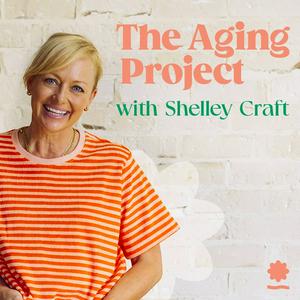
Get the free radio.net app
- Stations and podcasts to bookmark
- Stream via Wi-Fi or Bluetooth
- Supports Carplay & Android Auto
- Many other app features
Get the free radio.net app
- Stations and podcasts to bookmark
- Stream via Wi-Fi or Bluetooth
- Supports Carplay & Android Auto
- Many other app features


The Aging Project
Scan code,
download the app,
start listening.
download the app,
start listening.


